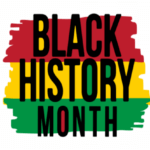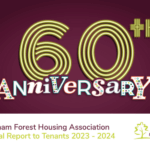
Planned strike action – the fire brigades union
February 19, 2015 | News Share
As you will probably already know, fire services across the country are striking against pension reforms.
When will the strike happen?
The Fire Brigades Union has announced a further strike date in England only .
Its members will be taking industrial action again on:
Wednesday 25th February 2015 at 07.00 for 24 hours
Until further notice, the FBU have also informed Fire Services that fire fighters will not work voluntary overtime, non-contractual overtime or any additional voluntary hours.
Why are the fire-fighters going on strike?
They are striking against changes being made to their pensions – almost 80% of fire-fighters voted in favour of industrial action.
What will happen if there is a fire?
Under the Fire & Rescue Services Act 2004 & the Civil Contingencies Act 2004, fire authorities have a duty to provide a fire & rescue service at all times. Around the country, fire authorities may have different approaches on how to do this, e.g. some may still attend using limited resources, or by using contracted services.
In London, a company called Capital Guard will be used and will have 27 fire engines available to work across borough boundaries. This is only 16% of the normal provision though so residents should be advised that there will likely be a delayed and reduced response in an emergency.
What incidents won’t be attended?
The Capital Guard arrangements are not intended to replicate or replace the fire authorities normal arrangements. As such, they will not attend –
• Grass fires and other outdoor fires such as trees, hedges or undergrowth alight
• Rubbish fires on open ground – including bins and skips
• Flooding
• Leakages and spillages of gas, petrol and other flammable liquids – these should be referred to the Environment Agency and / or the Local Authority.
• Large animal rescue – these should be referred to the RSPCA
• Releasing people shut in lifts
• Automatic fire alarms – they will only attend where the call has been followed up with a 999 call. In most sheltered schemes, the fire alarm is linked directly to the warden call system who will make a 999 call upon being notified by an incident. It is always best to dial 999 in an emergency regardless of systems in place though.
What incidents will be attended?
The London Fire Brigade have released details of the types of incidents that Capital Guard will attend; this will likely be similar to other fire authorities also. A further attachment from the London Fire Brigade is attached.
• House fires
• Vehicle fires
• Fires involving gas cylinders
• Explosions
• Fires at railway stations and rail and road tunnels
• Aircraft crashes
• Train crashes – including London Underground trains
• Road Traffic Collisions
• Emergencies in underground construction work that involve people – such as tunnels or sewers
• Boat fires – including moored boats
• Boat collisions
• Vehicles crashing into waterways
• Fires involving hazardous substances such as gas, petrol and other flammable liquids
• Collapsed structures where people are trapped
As a general rule though, they will still attend incidents where there is a risk to life or injury and these will be prioritised accordingly.
What if there is a national disaster or major incident?
The Fire Brigades Union (FBU) has agreed it will exempt fire-fighters and operational managers from strike action if they volunteer to help. The armed forces are also on stand by to assist.
Will further strikes happen?
So far, the Government and FBU have failed to reach agreement so further strikes are a possibility.
Further information will be available on the individual Fire Service’s website.



